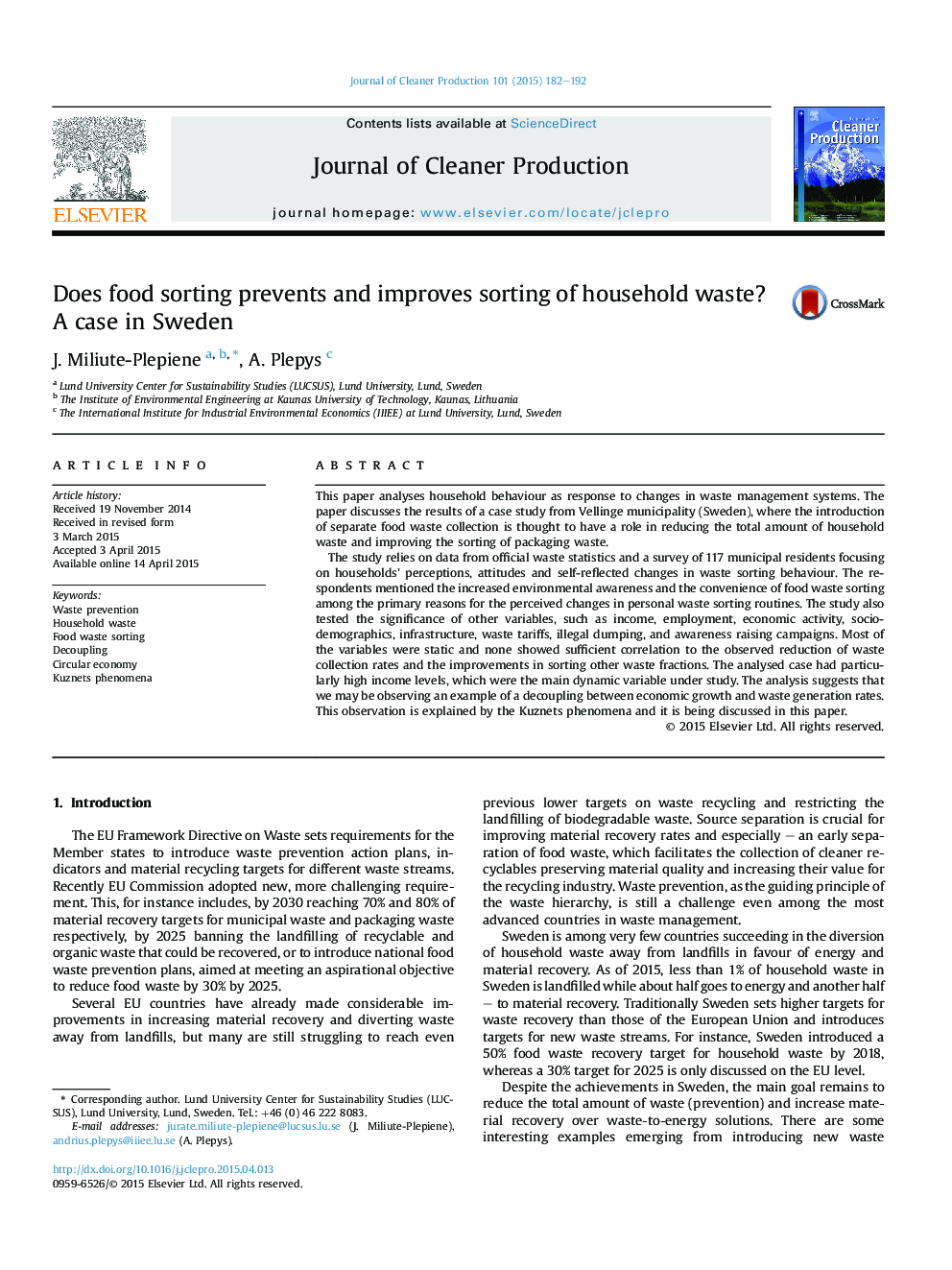| کد مقاله | کد نشریه | سال انتشار | مقاله انگلیسی | نسخه تمام متن |
|---|---|---|---|---|
| 1744587 | 1522145 | 2015 | 11 صفحه PDF | دانلود رایگان |
• Waste prevention and the quality of recyclables are critical for circular economy.
• We examined what implications could household food waste sorting have on the recycling and waste prevention behavior.
• Sorting out food waste improves the sorting quality of other recyclables.
• Sorting out food waste has as preventative spill over effect on the total amount of waste generated.
• The most important factors for improving behavior were found to be improved environmental awareness and convenience.
This paper analyses household behaviour as response to changes in waste management systems. The paper discusses the results of a case study from Vellinge municipality (Sweden), where the introduction of separate food waste collection is thought to have a role in reducing the total amount of household waste and improving the sorting of packaging waste.The study relies on data from official waste statistics and a survey of 117 municipal residents focusing on households' perceptions, attitudes and self-reflected changes in waste sorting behaviour. The respondents mentioned the increased environmental awareness and the convenience of food waste sorting among the primary reasons for the perceived changes in personal waste sorting routines. The study also tested the significance of other variables, such as income, employment, economic activity, socio-demographics, infrastructure, waste tariffs, illegal dumping, and awareness raising campaigns. Most of the variables were static and none showed sufficient correlation to the observed reduction of waste collection rates and the improvements in sorting other waste fractions. The analysed case had particularly high income levels, which were the main dynamic variable under study. The analysis suggests that we may be observing an example of a decoupling between economic growth and waste generation rates. This observation is explained by the Kuznets phenomena and it is being discussed in this paper.
Journal: Journal of Cleaner Production - Volume 101, 15 August 2015, Pages 182–192
